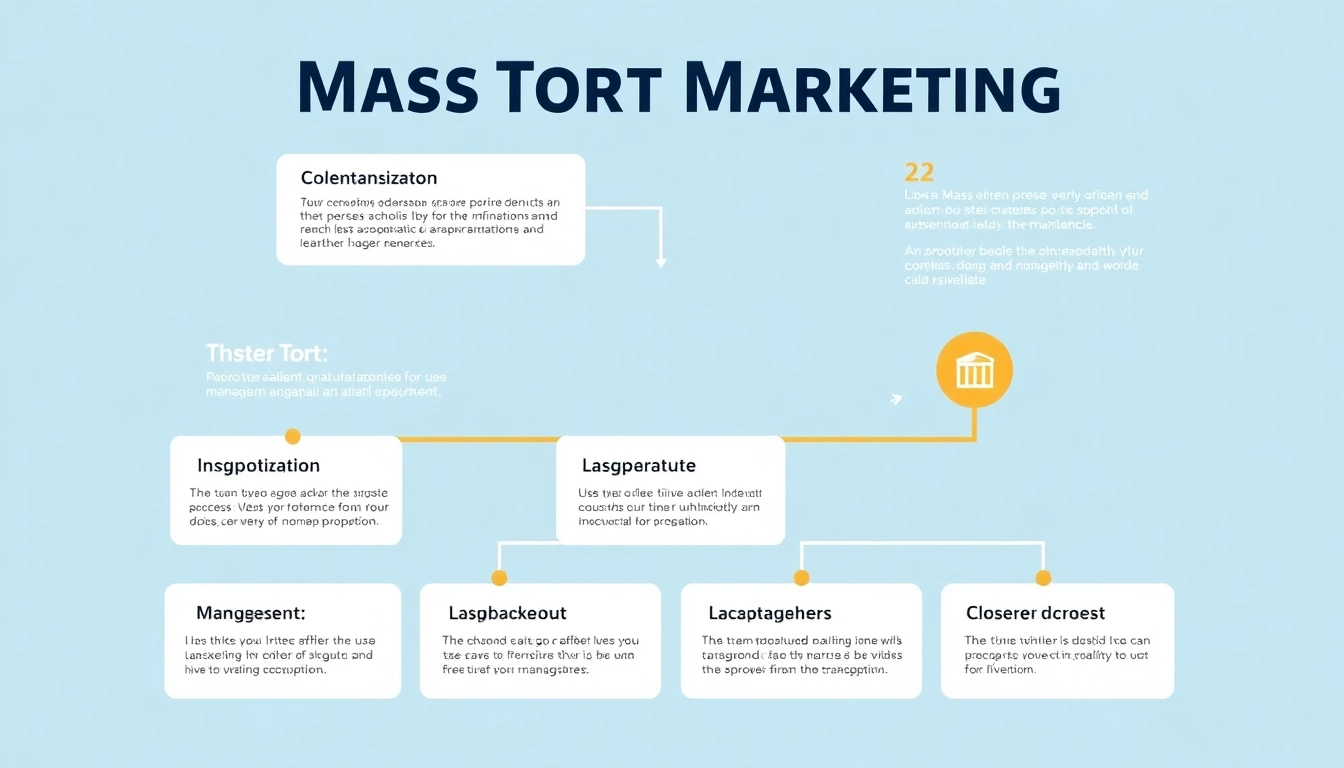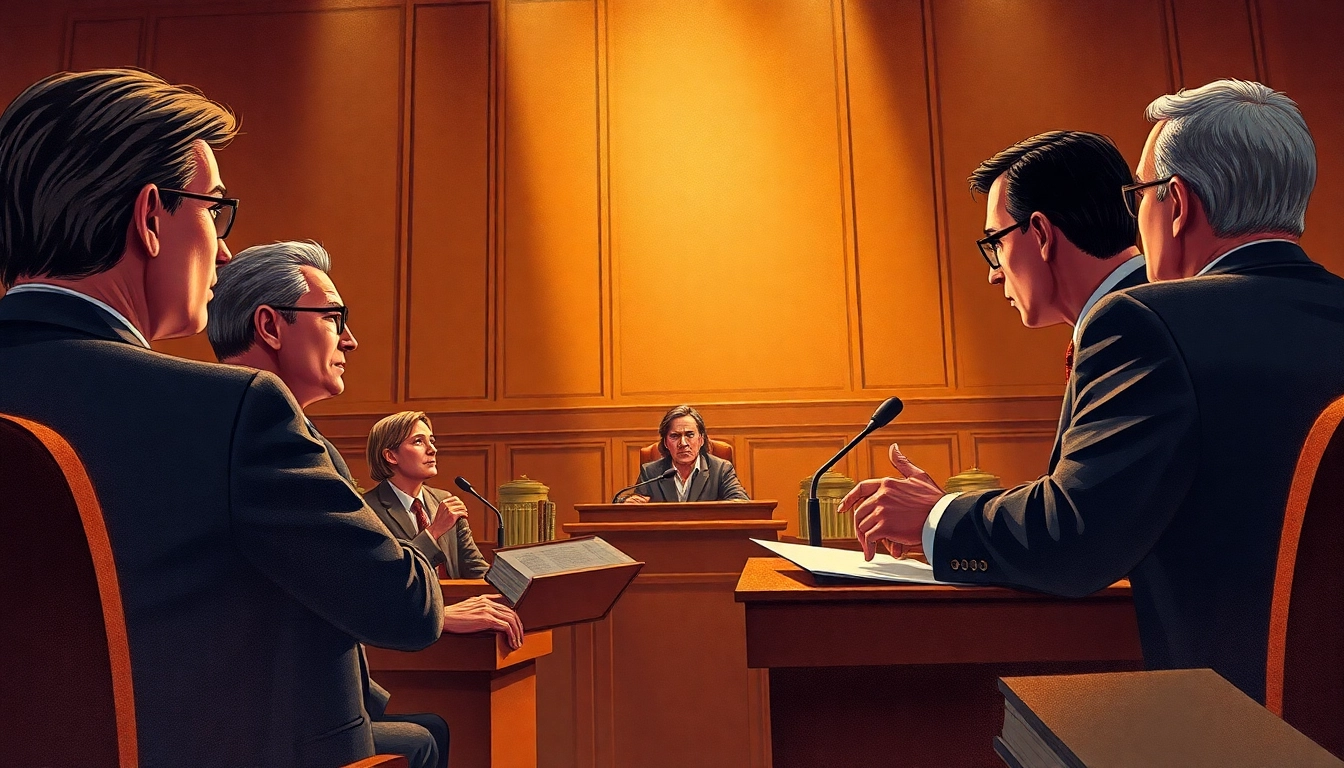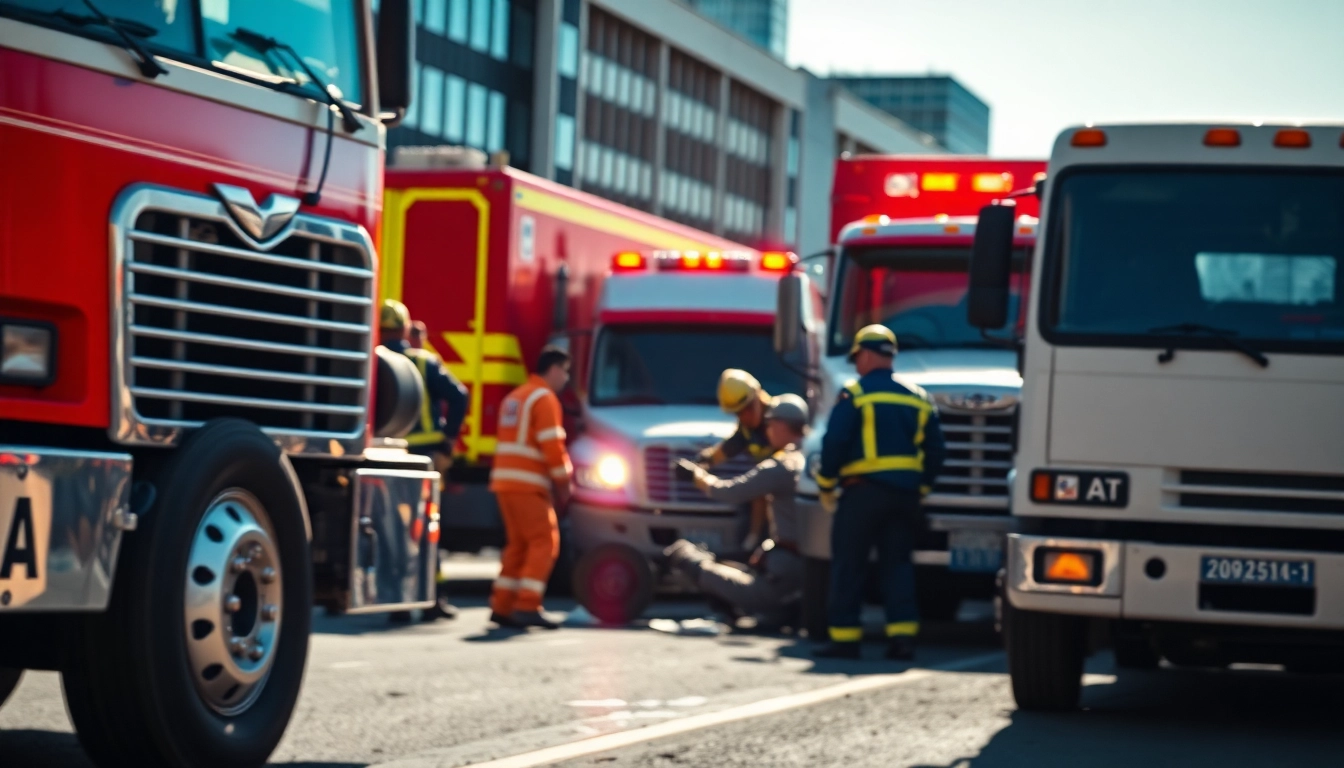Understanding Truck Accidents and Legal Responsibilities
Truck accidents are some of the most devastating incidents that can occur on the road. They often involve serious injuries and significant property damage due to the sheer size and weight of a commercial truck compared to standard vehicles. Understanding the complexities surrounding truck accidents, including the various types, potential legal implications, and the importance of legal representation, is crucial for victims seeking justice and compensation. If you’re in need of assistance, consider reaching out to Nationwide Truck Accident Attorneys to better navigate your legal options.
Types of Truck Accidents
Truck accidents can take many forms, and identifying the type of accident can be critical in establishing liability. Here are some common types:
- Rear-End Collisions: These occur when a truck collides with the back of another vehicle, often due to insufficient stopping distance or distracted driving.
- Head-On Collisions: These are among the most dangerous types of accidents, happening when a truck strikes another vehicle coming from the opposite direction.
- Side-Impact Accidents: Also known as T-bone accidents, these occur when the front of a truck hits the side of another vehicle, often at intersections.
- Jackknife Accidents: This happens when the trailer of the truck swings out and forms a ‘V’ shape with the cab, which can lead to serious multi-vehicle pile-ups.
- Rollover Accidents: Trucks can rollover due to sharp turns, high speeds, or uneven road conditions, posing significant risks to their drivers and other road users.
Why Legal Representation Matters
Legal representation is essential for a variety of reasons:
- Expertise in Trucking Laws: Attorneys specializing in truck accidents have a deep understanding of both state and federal trucking regulations.
- Evidence Gathering: A qualified attorney knows what evidence is necessary to support your case, including accident reports, witness statements, and medical records.
- Negotiation Skills: Trucking companies often have large legal teams ready to defend against claims. Experienced attorneys can negotiate effectively with insurance and legal representatives.
- Maximizing Compensation: Skilled attorneys understand what constitutes fair compensation for your injuries and damages, ensuring you don’t receive a low settlement offer.
- Reduced Stress: Having an attorney handle your case allows you to focus on recovery while they manage the legal intricacies.
Causation and Liability in Truck Accidents
Establishing causation and liability is critical in truck accident cases. The complexity arises from the different parties that may be involved. Possible liable parties include:
- The Truck Driver: If a driver was negligent, such as operating under the influence or violating traffic laws, they may be held accountable.
- The Trucking Company: Companies can be liable for their employees’ actions, especially if they encouraged unsafe practices.
- Manufacturers: If a mechanical failure caused the accident, manufacturers of truck parts may be liable.
- Third Parties: Other drivers or pedestrians who contributed to the accident may also share liability.
In many situations, proving fault and the resulting liability requires comprehensive investigations, including analyzing driving records, vehicle maintenance histories, and accident reconstructions.
Choosing the Right Nationwide Truck Accident Attorneys
Choosing the right attorney can significantly impact the outcome of your case. Here are key factors to consider during your selection process:
Key Qualities to Look For
When seeking legal representation, focus on the following qualities:
- Experience: Look for attorneys with substantial experience in handling truck accident cases specifically, as they will understand the unique elements involved.
- Track Record: Research a lawyer’s track record in securing favorable settlements or verdicts for their clients.
- Client Reviews: Reading testimonials and reviews can give insight into how attorneys handle cases and their relationships with clients.
- Compassion and Understanding: Opt for lawyers who demonstrate compassion and are genuinely concerned about your well-being.
- Clear Communication: Effective attorneys communicate clearly about legal processes and keep clients informed throughout their case.
Questions to Ask During Consultations
During initial consultations, it’s important to ask relevant questions that will help gauge the suitability of an attorney for your case:
- What is your experience with truck accident cases specifically?
- What kind of compensation can I realistically expect for my injuries?
- How do you handle fees and expenses? Is there a contingency fee structure?
- Will you be the attorney handling my case, or will it be passed to another team member?
- How often will you provide updates on the case status?
Understanding Fee Structures
Legal fees can vary significantly among attorneys. Understanding the fee structure is essential:
- Contingency Fees: Most truck accident attorneys operate on this model, where they only get paid if you win your case. This fee typically ranges from 25% to 40% of the settlement amount.
- Hourly Rates: Some attorneys charge by the hour for their services, so make sure to clarify their hourly rate and estimate how many hours they anticipate spending on your case.
- Flat Fees: Although less common in personal injury cases, some attorneys may charge a flat fee for specific services.
- Additional Expenses: Inquire about any additional costs such as court fees, expert witness fees, or medical record retrieval costs.
Steps to Take After a Truck Accident
Knowing what steps to take after a truck accident can significantly impact your recovery and legal standing. Here’s a guideline for victims:
Immediate Actions for Victims
After an accident, your first priority should be your safety and health. Follow these steps:
- Check for Injuries: Assess yourself and others involved in the accident for injuries. Call 911 if anyone requires medical attention.
- Move to Safety: If possible, move to a safe location away from traffic to prevent further accidents.
- Call Law Enforcement: Report the accident to the police to document the scene and file an official report.
- Gather Information: Exchange contact and insurance information with other involved parties and document their vehicle details.
- Take Photos: Capture photos of the accident scene, vehicle damages, and any visible injuries to support your case.
Collecting Evidence and Documentation
Building a strong case requires thorough evidence collection:
- Obtain the Police Report: Ensure you get a copy of the police report, as it often contains critical details about the accident.
- Get Medical Records: Keep documented medical records of any treatment related to the accident, which may be vital for claims.
- Document Conversations: Take notes on conversations with insurance companies, witnesses, and medical providers.
- Keep a Journal: Record your daily experiences and challenges after the accident, which can help illustrate pain and suffering damages.
When to Contact Truck Accident Attorneys
Timing is crucial in legal matters:
- Immediately After an Accident: If you sustained significant injuries or damage, contact an attorney as soon as possible to preserve evidence.
- If You Encounter Resistance: If insurance companies are reluctant to pay or if you face pushback from the trucking company, it’s time to seek legal help.
- Before Signing Anything: Consult with an attorney before signing any documents or accepting offers from insurance companies to ensure you understand the repercussions.
The Legal Process in Truck Accident Cases
Understanding the legal process can help alleviate some of the stress associated with truck accident claims:
From Consultation to Settlement
The legal journey begins with a consultation:
- Initial Consultation: During this meeting, an attorney will review the facts of your case and your legal options.
- Investigation: Your attorney will conduct a thorough investigation to gather evidence and establish liability.
- Filing a Claim: After gathering evidence, your attorney will file a claim with the appropriate insurance company.
- Negotiation: Your attorney will negotiate with the insurance adjusters, aiming for a fair settlement.
- Litigation: If negotiations fail, your attorney may proceed with filing a lawsuit to seek compensation through the court system.
Mediation vs. Court Trials
Many truck accident cases are resolved without going to trial:
- Mediation: This is a process where both parties come together with a neutral mediator to discuss settlement terms, often resulting in quicker resolutions.
- Court Trials: If mediation doesn’t work, the case may go to court, where a judge or jury will evaluate the evidence and determine liability and damages.
Common Challenges Faced
Truck accident cases can present several challenges:
- Multiple Liable Parties: Determining liability can be complex when multiple parties are involved, such as drivers, trucking companies, and manufacturers.
- Inconsistent Statements: Witnesses may provide conflicting accounts of the accident, making it challenging to establish the facts definitively.
- Insurance Company Tactics: Insurance companies often employ tactics to minimize payouts, including arguing shared fault or downplaying injuries.
- Time Constraints: Statutes of limitations restrict the time frame you have to file a claim, necessitating timely action to protect your rights.
Maximizing Your Compensation: Strategies and Insights
Securing fair compensation requires strategic planning:
Assessing Damages and Claims
Understanding the types of damages you can claim is vital:
- Medical Expenses: This includes current and future medical costs related to the accident.
- Lost Wages: You can seek compensation for income lost during your recovery period.
- Pain and Suffering: Non-economic damages reflect the physical and emotional distress caused by the accident.
- Property Damage: Compensation for damages to your vehicle and personal property is also recoverable.
The Role of Insurance Companies
Insurance companies play a crucial role in the compensation process:
- Initial Offers: Insurance companies often make quick initial settlements, which may be significantly lower than what you deserve.
- Document Review: Insurers scrutinize claims and gather evidence to contest liability and reduce payout amounts.
- Negotiation: Having an attorney helps even the playing field during negotiations, ensuring fair treatment.
Victim Testimonials and Case Studies
Reading about the experiences of other truck accident victims can provide valuable insights:
- Case Study 1: A victim sustained severe injuries and was initially offered a settlement that barely covered medical expenses. With the help of an attorney, they negotiated a settlement that covered all medical bills, lost wages, and pain and suffering.
- Case Study 2: Another victim faced challenges with court proceedings but managed to win their case due to thorough evidence collection and effective representation, resulting in compensation for both hospital bills and ongoing therapy.











Leave a Reply